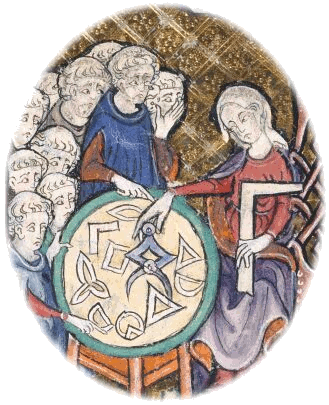
Math is Tough, but Boys are Tougher
August 6, 2012 As Barbie so famously stated, "Math class is tough!". A recent article that would have been classified as mere flamebait had it not been published in The New York Times, echoes this sentiment. Andrew Hacker, an emeritus professor of political science at Queens College of the City University of New York, writes that compulsory mathematics courses, such as algebra, are an unnecessary stumbling block for otherwise gifted students.[1] Andrew Hacker is co-author with Claudia Dreifus of the book, "Higher Education? How Colleges Are Wasting Our Money and Failing Our Kids — and What We Can Do About It."[2-3] His New York Times article had 475 comments before commenting was closed. My wife, who is an elementary school science teacher, joins me in my utter amazement that something as useful as mathematics would be so devalued in our culture. It isn't just Barbie and some political science professors who thinks math is hard. As I wrote in a previous article (Science and Math, July 16, 2012), some scientists agree. Scientists will ignore research papers in the fields of ecology and evolution if they have too many equations.[4] Although I'm comfortable with many areas of mathematics, I tend to avoid journal articles that are too heavy on the math and light on graphics. There's a lingering controversy about the difference in mathematical aptitude between women and men. Are women less capable of doing math, or is it just that society directs young girls away from math? In my generation, there were certainly societal forces that steered girls away from technical subjects. Starting in sixth grade, the boys of my generation had regular instruction in woodworking and other manly arts. Where were the girls? They were off learning "Homemaking." | A woman teaching geometry to a group of monks, circa 1309-1316. This has been the background image on my desktop computer for many years. (Source, the British Library, via Wikimedia Commons). |
"The observed difference in arithmetic accuracy between the sexes may arise from a willingness to risk being wrong by answering from memory before one is sure of the correct answer... In our study, we found that boys were more likely to call out answers than girls, even though they were less accurate early in school. Over time, though, this practice at remembering answers may have allowed boys to surpass girls in accuracy."[5]From my own experience as a young boy, I can confirm that boys take more risks than girls. Looking back on my youthful adventures, it's a wonder that I made it to my teen years, still alive, with just a few scars. The concept that "practice makes perfect" might also apply. Says Bailey, who will be leaving Missouri with Ph.D. in hand to start a post-doctoral position at Carnegie Mellon University, "Attempting more answers from memory gives risk-takers more practice, which may eventually lead to improvements in accuracy."[5] Parents can apply this knowledge by making their children more comfortable with numbers before they begin elementary school. In that case, their children would start using their memory of basic math facts at an earlier age. The theory is that a child's brain is initially a tabula rasa that's not yet been "mapped" to understand numbers; but, the more the brain is exercised, more mathematical associations are formed.[5]
References:
- Andrew Hacker, "Is Algebra Necessary?" The New York Times, July 28, 2012.
- Andrew Hacker and Claudia Dreifus, "Higher Education?: How Colleges Are Wasting Our Money and Failing Our Kids---and What We Can Do About It," St. Martin's Griffin; Reprint edition, August 2, 2011 (Paperback, 304 pages, via Amazon).
- Steven Knapp, "Why Johnny's College Isn't What It Used to Be," The New York Times, August 18, 2010.
- Tim W. Fawcett and Andrew D. Higginson, "Heavy use of equations impedes communication among biologists," Proceedings of the National Academy of Sciences, vol. 109, no. 29 (July 17, 2012), pp. 11735-11739.
- Boys' Impulsiveness May Result in Better Math Ability, Say MU Researchers, University of Missouri Press Release, July 27, 2012.
- Drew H. Bailey, Andrew Littlefield and David C. Geary, "The codevelopment of skill at and preference for use of retrieval-based processes for solving addition problems: Individual and sex differences from first to sixth grades," Journal of Experimental Child Psychology, vol. 113, No. 1, (September 2012), pp. 78-92.
- Andrew Hacker and Claudia Dreifus, "Higher Education?: How Colleges Are Wasting Our Money and Failing Our Kids---and What We Can Do About It," St. Martin's Griffin; Reprint edition, August 2, 2011 (Paperback, 304 pages, via Amazon).